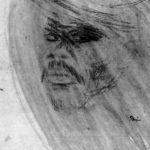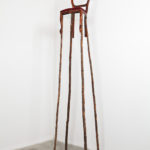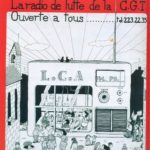
World Black Revolution (1966)
All over Africa, Asia, South, Afro and Central America a revolution is haunting and sweeping.

All over Africa, Asia, South, Afro and Central America a revolution is haunting and sweeping.

Thinking pedagogically renders a coalition between the universality associated with class struggle, and the positionality that is key to a radical identity politics. Attending to the actual arrangements of voices and minds and bodies in classrooms and movements, what people actually do when they come together to fight and unlearn oppressive relations of production, shows a link where most ideologies on offer today show a gap.

The Catalan independence struggle is not the politicization and expression of social problems, but the socialization of political problems. For this to happen, social problems necessarily became subsumed and misrepresented in the independence process, and the cross-class project of Catalan independence was sold as a solution to the problems of the economic crisis and the crisis of representation.
Tags: Catalonia, class, crisis, migration, narrative, national independence, Spain

In 1977 Louis Althusser gave a famous speech in Venice on “the crisis of Marxism,” a thesis almost as scandalous as that of an epistemological break in Marx’s thought.

The problems of Althusser’s text and other recent interventions appear to me to lie elsewhere. What does it mean that “the party must be fundamentally outside the State,” with the clarification that it is “through its activity within the masses”? What does it mean to “tear the party away from the state”? Do we not find here an ideal (and idealist) conception of a party?
Tags: In Translation

The paradox we are experiencing consists in the fact that today the critique of capitalism and the state is produced in real social conflicts, advances through real political subjects, material practices: here we already move in the zone of the “screen,” beyond the categories inherited and taken from the traditional workers’ movement, in the profile of another which is expressed as a need and seen in clips of experience.

We must start again on the basis of an irreversible pluralism, and look to move past paroxysmal – and today, caricatured – forms that have led up to this critical moment wherein every mass workers’ organization is in upheaval, and replace them in the face of the unresolvable alternative of passivity or ephemeral revolt. No matter its concrete shape, the outcome of the crisis of the party-form depends on the simultaneous transformation of all the organizations of the workers’ movement (none of which have every been purely composed of workers).

The real question is rather: for those who deny the centrality of the working class, where is the epicenter? For the centrality of the working class is not merely “sociological”: it is an image of the centrality of the modes and relations of production with multiple social and ideological formations which intersect and contradict each other. Or further: in a system without an epicenter, where would movement come from?

The critique of Stalinist dogmatism from “the left-wing position of theoretical antihumanism” challenges a form of Marxist theory which supports, guarantees, and illustrates a certain view and practice of class struggle, a certain vision of socialism.

Once we manage to avoid identifying a “political center” and “theoretical” center in advance, from identifying the elaboration of a strategy with the application of a pre-established vision to the course of history, it might be possible to overcome the dilemmas of “democratic centralism” and the “right to tendencies.”